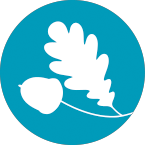History
Intent
At Merrylands Primary School and Nursery, we encourage pupils to develop an appreciation and understanding of the past, evaluating a range of primary and secondary sources. As historians, children will also be able to explain clearly how these sources give us an insight about how people around the world used to live and how these interpretations may differ. Pupils will be taught to make links between these areas of learning, with the aim of developing engaged, motivated and curious learners that can reflect on the past and make meaningful links to the present day.
The History Curriculum has been designed to cover all of the skills, knowledge and understanding as set out in the Early Years Framework and the National Curriculum. To ensure high standards of historical learning in EYFS, children are taught History through cross curricular opportunities and through the ‘Understanding the World’ area of learning. The National Curriculum states that ‘a high-quality history education will help pupils gain a coherent knowledge and understanding of Britain’s past and that of the wider world. It should inspire pupils’ curiosity to know more about the past.’ To ensure that pupils develop a secure knowledge that they can build upon, the History Curriculum is organised into a progression model that outlines the skills, knowledge and vocabulary which is taught in a sequentially coherent way. Chronological Understanding; Historical Understanding; Historical Enquiry; Interpretations of History; Organisation and Communication are all mapped out to ensure that pupils build on secure prior knowledge. For each of these strands, the content has been carefully organised by each year group through a long term plan. Meaningful links with other subjects are made to strengthen connections and understanding for pupils such as Geography. The History units have been developed to help children appreciate their own identity and the challenges in their time. The units are in chronological order to help the children understand the process of change over time and significant developments.
Implementation
Teaching of History follows our bespoke History Long Term Plan which explicitly shows the progression of subject specific vocabulary, key knowledge and skills. Knowledge goals are progressive to build on the children’s prior knowledge each year. Each unit of work draws upon a ‘Big Question’ which is introduced at the start of the unit and all learning focuses around answering the question at the end of the unit. Subject specific vocabulary is displayed on the learning wall along with key facts and questions, and model exemplars of the work being taught.
As historians, children will be given a variety of resources and experiences, both inside and outside of the classroom, to create memorable learning opportunities, to provide further support and develop their understanding and to make the learning accessible for all.
In Key Stage 1, children will develop knowledge of significant historical events, people and places in their own locality and the wider world. They will gain a deeper awareness of the past and identify similarities and differences between ways of life in different periods. They will be taught to ask and answer questions, to use a wide variety of historical vocabulary and record their findings in different ways. Children will learn about changes within and beyond living memory such as The Great Fire of London as well as the lives of significant individuals such as Neil Armstrong and Christopher Columbus.
In Key Stage 2, the children will continue to develop their chronological knowledge and understanding of significant events, people and places, making connections and comparisons between different periods in time. Children will further develop their questioning skills and focus their questions on change, cause, similarity and difference, and significance. Children will learn about changes in Britain such as Stone Age, Iron Age, the Romans, Invaders and Settlers as well as comparing early civilizations such as The Shang Dynasty of Ancient China and the Mayan Civilization. They will also look at a local history study relevant to the location of the school.
Impact
The knowledge, skills and vocabulary developed through the history curriculum ensures children are equipped with a deep awareness of the past and knowledge of how this has influenced their daily lives, preparing them for their next step of education and beyond.
History knowledge goals are assessed throughout each unit of work using the Merrylands assessment grid and this information is used to inform future planning. The subject is monitored regularly to measure the impact of the History curriculum content, design and delivery and the outcomes of this monitoring are used to drive forward next steps within the subject.
